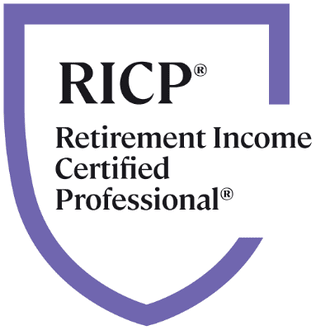
How to Retire Early from Corporate Careers
For some, there is a dream of being able to retire early from their corporate career. You have worked hard, and have risen the ranks, taken on increased responsibility, earned more, and want to be able to have an off-ramp at the appropriate time. Perhaps you want to pursue another passion, a new career, spend more time with family, or simply travel abroad. To retire early, there are several important strategies to consider for those, especially in corporate careers.
1. Establish your target number.1 How much money do you need to make early retirement a reality?2 This part may be difficult to calculate on your own, especially when there are multiple scenarios to consider, like how a possible recession would affect your investments. A good financial planner can help you crunch the numbers and provide an action plan to achieve your goals and even hold you accountable for results. Your retirement target can be achieved if you plan ahead.
2. Get strategic about paying down debts. Paying down debt can be daunting. To retire early, it’s imperative to pay the debt off strategically. But make sure you have at least 3 to 6 months of living expenses on hand as you don’t want to be raking up additional debt in case of any emergency. You want to pay down all of your debt as quickly as possible. Making regular payments against your loans. Also, make sure you are paying off higher-interest debt first.
3. Save, invest, and live below your means. This is the most basic principle of a sound financial planning strategy and a retire early strategy.3 This strategy uses the magic of compounding interest. Saving much more than you earn and investing this money in low-cost index mutual funds that generate a good return is a winning strategy. Although there is no guarantee of favorable market returns, if you plan ahead early enough to invest aggressively this can be an important strategy for early retirement.
4. Factor in Social Security and Health Insurance Benefits.4 Social Security benefits are available starting at age 62. Younger retirees typically won’t be eligible for Social Security benefits. If you are able to start receiving Social Security payments, it’s worthwhile to consider the implications of doing so. Taking benefits before you reach your full retirement age will reduce the monthly payments you receive. For example, if you sign up for Social Security at age 62 and your full retirement age is 66, you can expect to receive a 25% lower monthly benefit compared to waiting until you turn 66 to start collecting payments. Also, if you are 65 or older, you are probably eligible for Medicare. If you are younger than 65, you’ll want to find out if health insurance benefits are part of the retirement package or you will need to get it elsewhere.
5. Solve any over-concentration stock problems.5 This is an important issue for those that work especially in corporate careers. It is common to get some of your retirement income in the form of company stock. How much of your retirement money is tied up in company stock? An ideal amount of company stock should be no more than 10% of your retirement nest egg. You don’t want to be at the mercy of your company’s performance to fund your retirement dreams.
6. Severance package available. Most early retirement offers include a severance package that is based on your annual salary and years of service at the company. For example, your employer might offer you one or two weeks' salary (or even a month's salary) for each year of service. Make sure that the severance package will be enough for you to make the transition to the next phase of your retirement life. Also, make sure that you understand the payout options available to you. You may be able to take a lump-sum severance payment and then invest the money to provide income or use it to meet large expenses. Or, you may be able to take deferred payments over several years to spread out your income tax bill on the money.
7. Max out your 401(k) plan or other deferred compensation plans. This is one of the most important strategies to do to retire early. Oftentimes the best way to optimize your savings is through retirement accounts. Qualified deferred compensation plans such as employer-sponsored retirement plans in 401(k) and IRAs provide unparalleled tax advantages and potential investment growth. In 2020, you can contribute up to $19,500 pretax to a 401(k) and $6,000 to a traditional IRA. You can also easily open a taxable brokerage account to save even more. Non qualified deferred compensation (NQDC) plans, also known as 409(a) plans provide "golden handcuffs" in that employers have a way to attract and retain especially valuable employees since they do not have to be offered to all employees and have no caps on contributions.
There is a lot of choices to make in a strategy to retire early. It is best to speak to a financial planner so you can be on the right path to retire early. Thinking strategically can make early retirement a reality.
*This content is developed from sources believed to be providing accurate information. The information provided is not written or intended as tax or legal advice and may not be relied on for purposes of avoiding any Federal tax penalties. Individuals are encouraged to seek advice from their own tax or legal counsel. Individuals involved in the estate planning process should work with an estate planning team, including their own personal legal or tax counsel. Neither the information presented nor any opinion expressed constitutes a representation by us of a specific investment or the purchase or sale of any securities. Asset allocation and diversification do not ensure a profit or protect against loss in declining markets.
1. https://www.businessinsider.com/personal-finance/how-to-retire-early-steps-for-early-retirement
2. https://www.insider.com/early-retirement-downsides-challenges-losing-money-community-identity-2019-9
4. https://money.usnews.com/money/retirement/articles/how-to-evaluate-an-early-retirement-offer





